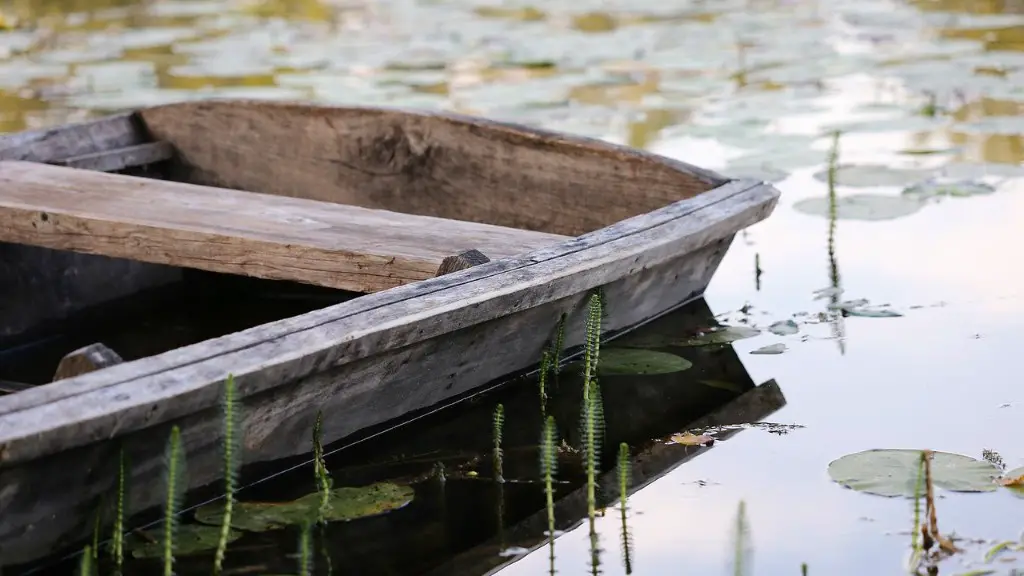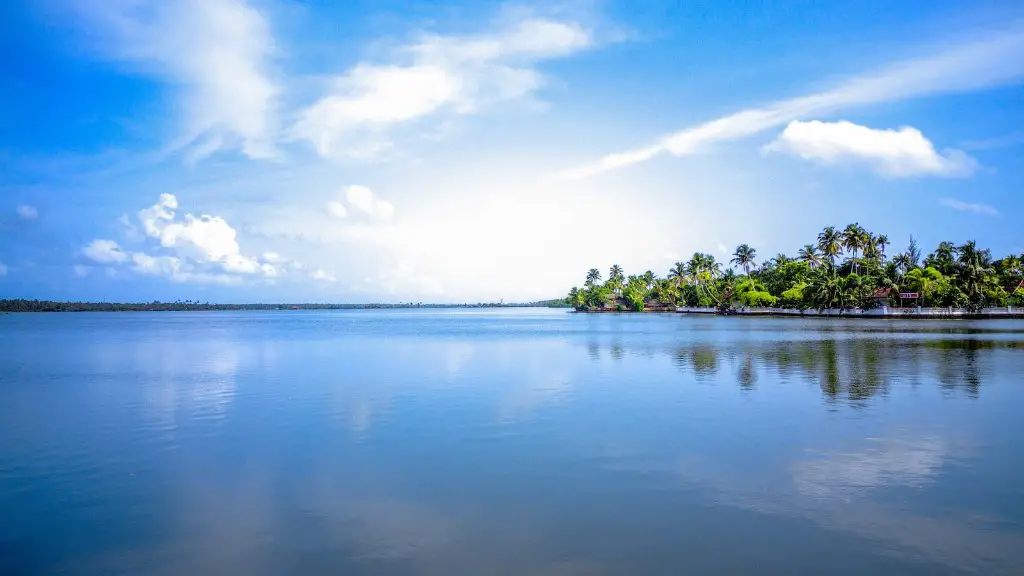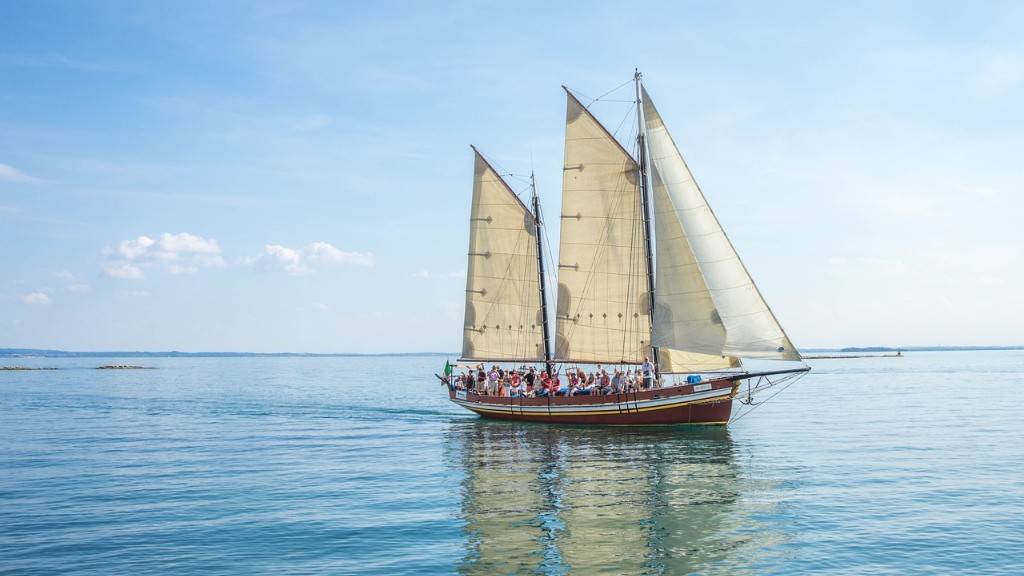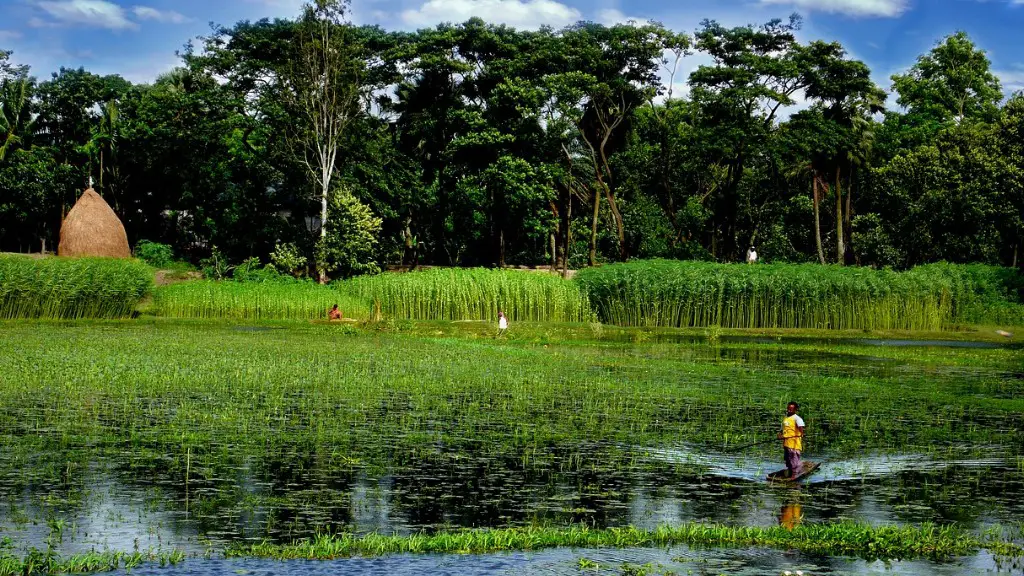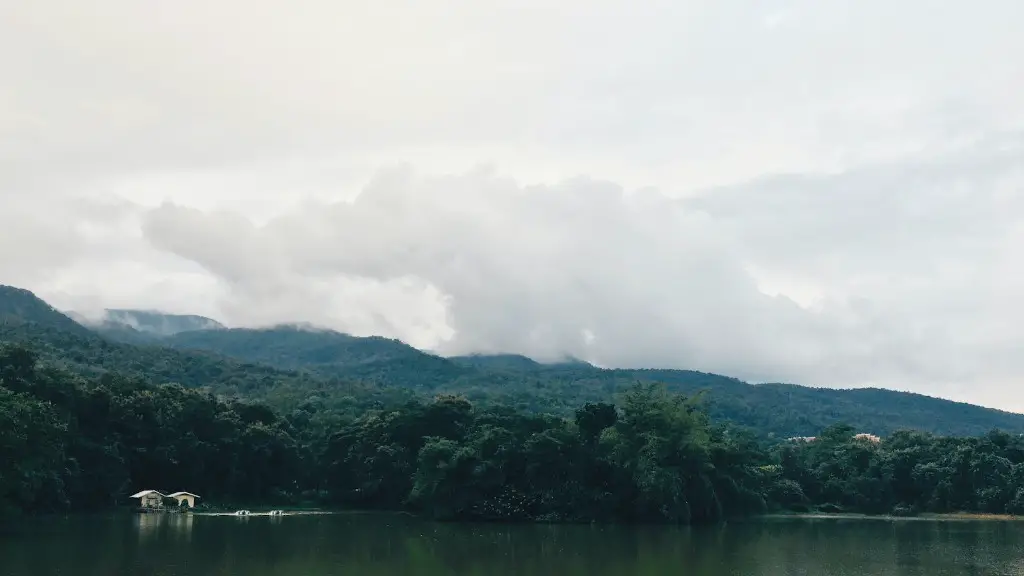The Geography of Lake Malawi
Lake Malawi is the third-largest lake in Africa, situated between Malawi, Mozambique and Tanzania. It is 605 km (376 miles) long, with an average depth of 244 metres (800 feet). It has a maximum depth of 700 metres (2,300 feet) and contains a volume of 8,400 cubic kilometres (2,000 cubic miles).
The coastline is 2825 km (1700 miles) long, with narrow sandy beaches, rocky coasts and many islands. The lake plays an important role in the region, providing transportation routes, water supply, and significant economic activity. Its many bays and inlets provide shelter, and it is connected to various inland rivers.
Lake Malawi has an extensive drainage basin, and is fed by many rivers. These include the Ruhuhu, Shire, Ruo, Phonewa, Tiwalumbi and Bua rivers. These rivers all drain from the nearby East African Rift, which is 1520 km (945 miles) long and is one of the largest rift systems in the world.
The lake is home to hundreds of species of fish, some of which are found nowhere else in the world. These include the Lake Malawi cichlids, which are a popular aquarium fish. These colourful species have adapted to the unique environment of the lake, and there are over 500 species of cichlids, many of which are varied and brightly coloured.
The lake is an important source of food, water and transport for those living in the region. It provides over 90% of the population with their main source of protein. Fishing is the main economic activity on the lake, and many of the local communities rely on it for their livelihoods.
In addition to its natural beauty, the lake is a popular destination for travellers. It is home to many lodges and resorts, as well as excellent beaches where visitors can relax and enjoy the views. Water-related activities such as scuba diving, snorkelling and boat trips are also available.
The Lake’s History and Culture
Lake Malawi has a long and varied history, and has been home to numerous cultures. It is believed to have been settled by the Ngoni people in the 17th century. Later, it became part of the British Empire, and the lake served as an important trade route between the various colonies. During this time, the lake saw a great deal of economic activity and cultural exchange.
Today, the lake is still home to many diverse cultures and communities, who rely on the lake for their livelihoods. The communities living around Lake Malawi have strong cultural and religious ties to the lake, and many festivals are celebrated on its shores. Music and dance are also important, and the lake is renowned for its traditional music.
The lake is also home to several national parks, which provide an important habitat for wildlife. The Lake Malawi National Park, which is home to many of the lake’s unique species, is a UNESCO World Heritage site.
The lake is an important source of freshwater for the region, and is an important habitat for many species of wildlife. The lake has also been heavily impacted by human activities, such as pollution and over-fishing. In recent years, there have been efforts to reduce the negative impacts of human activities, and to conserve the lake’s unique biodiversity.
Lake Malawi and its Economic Benefits
Lake Malawi provides many economic benefits to the region. Fishing is the primary activity, and provides significant economic activity and employment. The region has also seen an increase in tourism in recent years, as visitors come to the area to experience its natural beauty. The lodges and resorts around the lake also provide employment and income for the local people.
In addition, the lake is an important source of freshwater for the region, and is an important habitat for many species of wildlife. The lake is also an important source of food, and its fisheries are an important source of protein for the region.
The lake is also an important source of income for those living in the region, and the lake’s fisheries are an important source of foreign exchange earnings. This has helped to boost the local economy, and has provided income and employment for many communities around the lake.
The Lake Malawi National Park is also an important economic benefit, as it generates income from visitor fees and provides an important habitat for wildlife. The park is also home to many of the lake’s unique species, and is a major tourist attraction.
Conservation Efforts Around the Lake
In recent years, there have been many efforts to conserve the lake’s unique biodiversity and reduce the negative impact of human activity. These efforts have included initiatives to improve the quality of the water, establish protected areas and reduce over-fishing.
In 2000, the Lake Malawi National Park was established as a UNESCO World Heritage Site, providing an important habitat for many of the lake’s unique species. In addition, the park has contributed to biodiversity conservation and the protection of the lake’s fragile ecosystem.
The region has also seen increased investment in renewable energy, with new solar and wind power plants being built around the lake. This has helped to reduce the use of fossil fuels, and to improve the quality of the environment.
In addition, the local communities are increasingly taking part in conservation initiatives, and are being trained in sustainable fishing practices. This helps to reduce the impact of over-fishing and improve the health of the lake’s fish stocks.
Conclusion
Lake Malawi is a unique and diverse natural ecosystem that supports many species of fish, provides an important source of freshwater and supports the local economy. Conservation efforts are increasing in the area, and the lake is becoming an increasingly important tourist destination. The lake is an important source of food, water and transport for the region, and its many bays and inlets provide shelter and economic opportunities.
